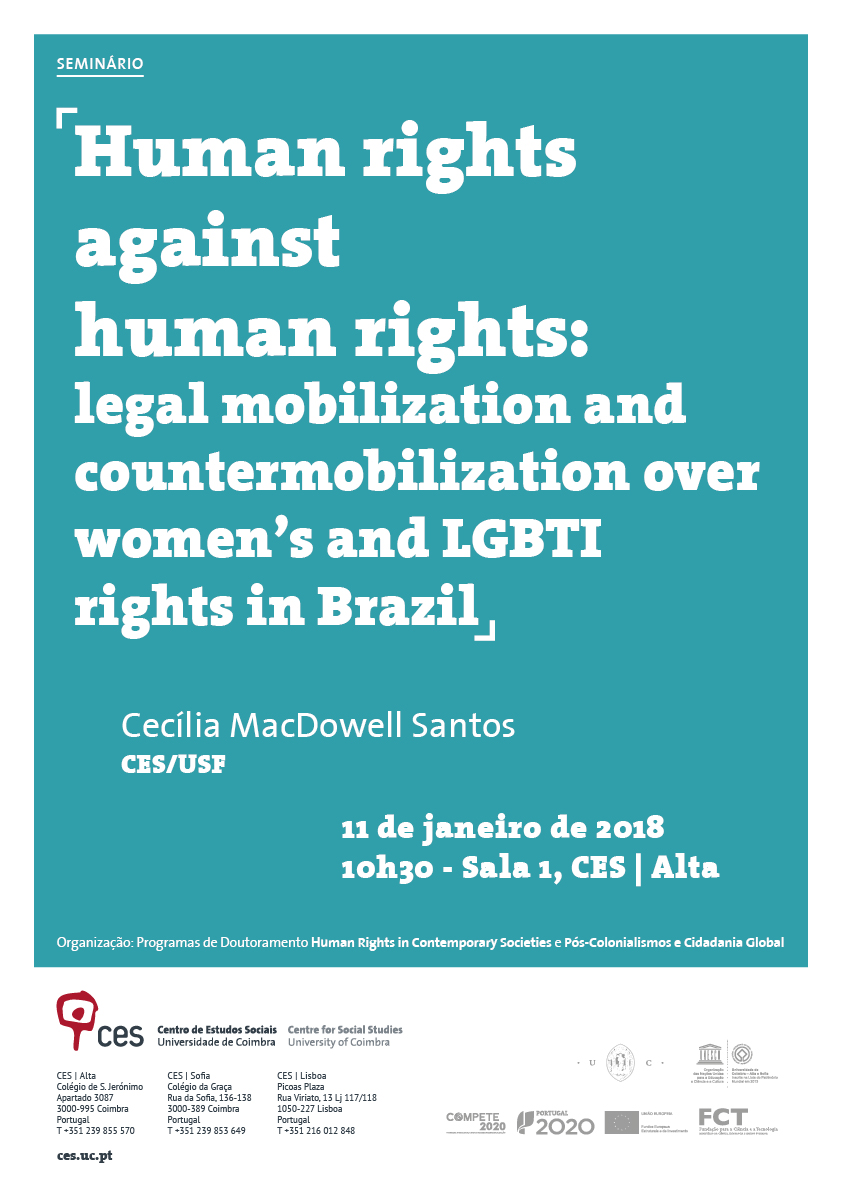Seminar
Human rights against human rights: legal mobilization and countermobilization over women’s and LGBTI rights in Brazil
Cecília MacDowell Santos (CES/USF)
January 11, 2018, 10h30
Room 1, CES | Alta
Abstract
This seminar seeks to examine the specific limitations for a progressive human rights politics and legality in Brazil since the impeachment and parliamentary coup that ousted President Dilma Rousseff in August of 2016. In the past 30 years, feminist, women’s and LGBTI movements, along with other social movement actors, have engaged in legal mobilization at both national and transnational scales, achieving some important victories for the advancement of human rights in Brazil. Drawing on research about violence against women laws and policies as well as (trans)national legal mobilization practices for human rights, I argue that legal mobilization as a strategy to foster the recognition of women’s and LGBTI rights has always been limited, and does not challenge the neoliberal and neocolonial project of development adopted by Brazilian governments in power since the democratization period initiated with the end of the military dictatorship in the mid-1980s. However, even from a liberal perspective on human rights, the selective legal recognition of women’s and LGBTI rights (and human rights in general) has faced a dramatic backlash in the past four years.
Since the impeachment of President Dilma Rousseff, this backlash has increased thanks to organized countermobilization actions that rely on similar legal mobilization strategies (e.g., litigation, legal campaigns, street demonstrations and protests) otherwise used by progressive human rights, women’s, LGBTI, and antiracism movements. What seems unique about recent countermobilization actions is the organized and consistent use of law as a weapon for reactionary politics of human rights. Countermobilization actors do not simply appropriate the language of human rights to combat human rights. They claim human rights, especially freedom of expression and equality, against gender, LGBTI, antiracism, landless workers, indigenous and quilombolas politics of human rights. Although countermobilization practices of human rights are not new, they have become more organized and effective in Brazil and across the Americas. Research and activism engaged in a progressive politics of human rights needs to learn more about such countermobilization practices that put human rights against human rights. Mapping the terrain and the actions of current reactionary politics and legality of human rights seems important to defending the human rights that have been recognized while fighting for a more radical social justice agenda both outside and inside the States in Latin America and elsewhere.
Bio note
Cecilia MacDowell Santos
Org: Doctoral Programmes Human Rights in Contemporary Societies e Pós-Colonialismos e Cidadania Global


